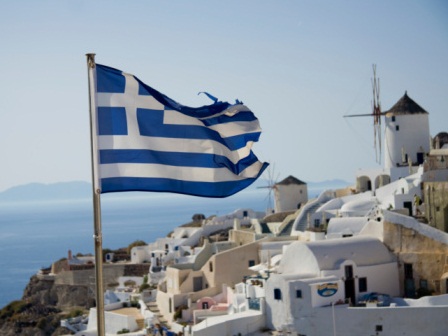In yet another sign that many experts believe Greece cannot reach an accord with its creditors before if runs out of money, Moody’s downgraded its debt from Caa1 to Caa2 with a negative outlook. The movement by the rating agency barely matters since the fate of Greece’s debt is in a very few hands, including the International Monetary Fund, European Commission and European Central Bank. Greece will run out of money in weeks, or days, depending on the source of the analysis.
Moody’s acknowledged that the parties to the negotiations are very small in number:
Negotiations between official creditors (European Financial Stability Facility (EFSF, (P)Aa1 stable), International Monetary Fund (IMF), European Central Bank (ECB) and European Commission) and the Greek government appear to have achieved little over the past two months. The Greek government and its official creditors remain far apart on key objectives, with no immediate prospect of agreement being reached on a new financing package.
As for the primary reasons for its actions, Moody’s experts wrote:
This rating action concludes the review for downgrade that commenced on 6 February 2015.
The key drivers behind the downgrade are :
1) The high uncertainty over whether Greece’s government will reach an agreement with official creditors in time to meet upcoming repayments on marketable debt.
2) The significant implementation risks of a follow-up, medium-term financing programme even if an agreement is reached, given the weakened economy and a fragile domestic political environment.
The negative rating outlook reflects Moody’s view that the balance of economic, financial and political risks in Greece is slanted to the downside.
ALSO READ: Lessons of Force Majeure for 2014, 2015 and Beyond
It is a matter of conjecture what a default would mean to Greece, how badly a default would hurt the rest of Europe economically and whether Greece may quit the European Union altogether.
The rating agency’s forecast for the financial future of Greece is grim:
Moody’s would consider downgrading Greece’s government bond rating if the probability of a default and/or severity of loss to investors in the event of default were to rise and no longer commensurate with a Caa2 rating. That would most likely occur in the context of a further deterioration in the relations between the Greek government and its creditors, or evidence that the Greek electorate is supportive of a more confrontational stance, potentially including exit from the euro area.
Although not likely in the near term given the prevailing downside risks, Moody’s could consider upgrading Greece’s government bond rating in the event of (1) an increase in the pace of fiscal consolidation and structural reforms; (2) sustained economic growth and primary surpluses, both would support a continued decline in debt levels; and (3) more certainty and visibility on future external financial support and the political environment.
The Greek problem certainly will need to be solved by the end of next month, under the most optimistic projections. May might not pass without an ugly resolution.
ALSO READ: Countries That Hate America the Most
100 Million Americans Are Missing This Crucial Retirement Tool
The thought of burdening your family with a financial disaster is most Americans’ nightmare. However, recent studies show that over 100 million Americans still don’t have proper life insurance in the event they pass away.
Life insurance can bring peace of mind – ensuring your loved ones are safeguarded against unforeseen expenses and debts. With premiums often lower than expected and a variety of plans tailored to different life stages and health conditions, securing a policy is more accessible than ever.
A quick, no-obligation quote can provide valuable insight into what’s available and what might best suit your family’s needs. Life insurance is a simple step you can take today to help secure peace of mind for your loved ones tomorrow.
Click here to learn how to get a quote in just a few minutes.
Thank you for reading! Have some feedback for us?
Contact the 24/7 Wall St. editorial team.


